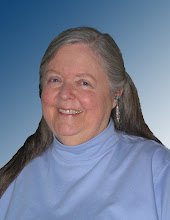Lately I've been feeling ambivalent about saying I'm writing a book when I'm not actually doing much writing at the moment. Then Donna and I had dinner with her childhood friend, Candy Rowe, who teaches writing at UMass Boston and her husband, Raffi Yessayan, a criminal defense attorney and published author (thrillers based on his former role as DA).
We got into talking about writing, of course, and the conversation clarified things for me by redefining what writing is.
Ministers often say that writing a 20-minute sermon takes about 20 hours. Part of the process involves reading, research, and thinking/feeling about the message. In my case, this initial part could take anywhere from 5 to 10 hours or even more. Then there's the preparation of the context, i.e. the service itself, including music, readings, children’s story, meditation/prayer, etc.--another 2-5 hours. Then when I'm ready to put the words together, that process takes 6-8 hours. Funny thing is that until just now, I never related my sermon writing process to the process of writing this book.
Raffi described his favorite role in "writing" as plotting, figuring out what's going to happen in the story, what the point of view is in each chapter, the character development, the flow of action, etc. That's what he's doing now with a book project he's currently working on with Candy and another couple.
I remembered how I used to write term papers. I spent the bulk of the time researching and making notes, all the while formulating in my mind what I was going to say. Sometimes what I would say changed, even late in the game, based on what I discovered in my research, which is why when I was in college, I often stayed up all night to finish a term paper. By the way, I almost always got As on my term papers but generally did not do as well on written exams.
So I realize that right now I’m in the reading, research, and thinking/feeling part of "writing" my book. I'm reading all sorts of things I saved or my mother saved that I wrote over the years--like the many long letters I wrote from Germany and the notes I made about my teaching and the challenges it presented. I'm sorting though boxes of papers and memorabilia, putting them into order—chronologically and by theme, subject, or type of writing. Then I take chunks and read through them and make notes.
Earlier I skimmed and partially read my journals, which cover the latter part of the time period I'm including in the book. When I get done reading the other things I’ve written, I intend to go back to the journals and try to put it all into context. I'm about to construct a timeline, so I can keep track and understand better what was happening when and what experiences may have led to what new thoughts and plans.
When I started my initial work on this project, I wrote what I remembered without referring to these materials from the past. If I had continued on that track, I might have been able to write an interesting book, but it would have lacked the depth and significance that will now be possible. Candy says what people expect from a memoir is a real grappling with the issues raised by one's life and experiences.
Processing the rich materials I have from my past almost requires a kind of self-psychoanalysis. I wonder if I can be self aware enough to do it on my own or if I need to ask for help. I've been considering finding a spiritual director.
One of my recurring ideas about structure is create a dialog between my 60s self and who I am today. I'm still not sure how to make it work, but I'm now learning to trust that when the time comes to put all this together, the structure, voice, and message will be clear and will, in the translated words of Rilke, “flow from me like a river, no forcing and no holding back, the way it is with children.”
I still have the chapter outline I made based on my initial writing, but I can see now that may need to change. I also finally understand why most memoirs I read, especially first ones, have taken the authors a decade or more to complete. Initially I thought I could complete a draft of my book by this summer and publish the book in 2013, but now I realize it will undoubtedly take longer. Still, I remain committed to getting the book out as soon as possible, because I believe it carries a message that will contribute to the social change movements of today.
At the Women’s Lodge Imbolc Retreat and Ritual, the message that came through to me was TRUST THE PROCESS. That’s just what I am now doing as I write this book!
At some point soon, I will start posting updates and reflections along the way at www.seachange1960s.net. Stay tuned.
Monday, February 13, 2012
Subscribe to:
Comments (Atom)

